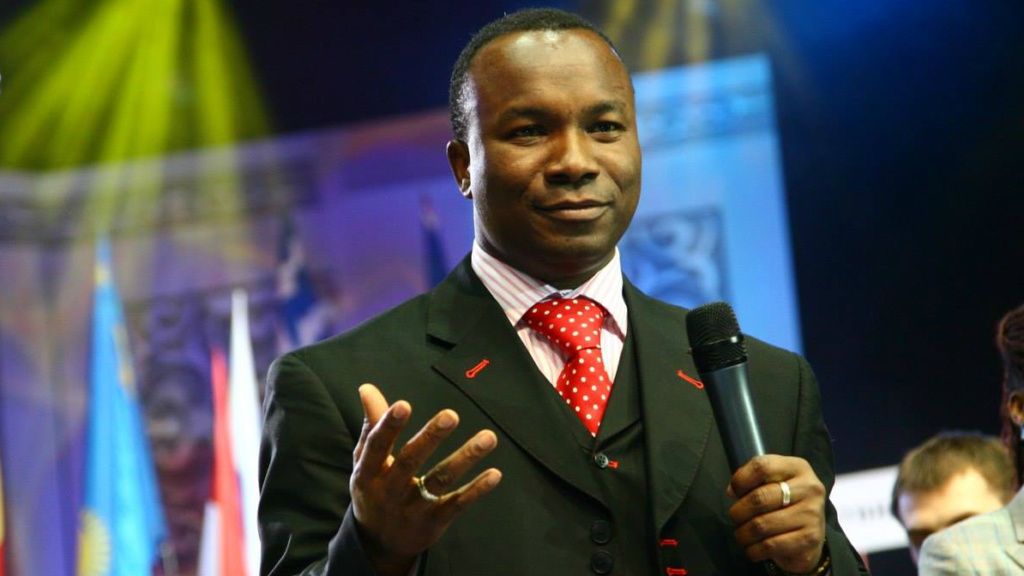
By Mrs Rachel Ajayi – Few questions grip the human psyche like the one Dr. Sunday Adelaja dares to confront in his forthcoming book, I Know When You Will Die; You Can Find Out Too. Set for release this month, this latest work from the New York Times bestselling author isn’t content to merely ponder mortality—it dissects it, quantifies it, and, most strikingly, hands readers the tools to rewrite it. Backed by a foreword from Professor Chris Imafidon—Wall Street Journal bestselling author, AI pioneer, and Co-Chair of Her Majesty Queen Elizabeth II’s Platinum Jubilee STEM Programme—this book arrives with intellectual heft and a promise: your lifespan isn’t just a mystery to unravel; it’s a variable you can influence.

Adelaja’s premise is as bold as his title suggests. Drawing on a wealth of scientific research, he argues that longevity isn’t a roll of cosmic dice but a tapestry woven from health, lifestyle, environment, and even social factors like education and marriage. The book’s ten core lessons—ranging from the impact of genetics to the hidden toll of stress—form a comprehensive guide that’s equal parts wake-up call and empowerment manifesto. It’s a refreshing departure from the fatalism that often shrouds discussions of death, offering instead a proactive blueprint for living longer and better.
From the outset, Adelaja’s tone is direct yet accessible, a hallmark of his bestselling style. He opens with a provocative hook: “What if I told you I could predict when you’ll die—and that you could change it?” It’s a question that lingers as he dives into the science, unpacking how factors like weight, gender, and family history set the stage for our years, while daily choices—like that extra glass of wine or skipped morning walk—nudge the clock forward or back. His clarity shines in chapters like “The Hidden Dangers in Everyday Habits,” where he exposes the insidious effects of sedentary routines or processed diets with data-driven precision, yet never veers into preachiness.
The book’s strength lies in its breadth. Adelaja doesn’t stop at biology. He explores how socioeconomic stability—think financial security or a supportive marriage—can bolster physical resilience, citing studies that link loneliness to early mortality or education to better health outcomes. It’s a holistic approach that mirrors the complexity of life itself, and it’s elevated by his knack for weaving personal anecdotes with hard science. One memorable passage recounts his own brush with dietary risks in his youth, a relatable pivot that grounds the research in human experience.
Professor Imafidon’s foreword sets an equally compelling tone. Fresh from his poignant media tributes to Queen Elizabeth II and Prince Philip—where he praised their resilience and impact—he frames Adelaja’s work as a natural extension of such legacies. “This is not a fatalistic tome,” Imafidon writes, “but a call to take control.” His endorsement, steeped in his authority as a STEM luminary, lends the book a gravitas that bridges the academic and the everyday. His reflections on mortality, honed by those royal losses, resonate with Adelaja’s mission: to demystify death and empower action.
Yet, I Know When You Will Die isn’t flawless. At times, its ambition strains its focus. The chapter on “Nature and Risk-Taking” feels overstretched, leaping from environmental toxins to adrenaline junkies with uneven coherence. Some readers may also find the sheer volume of factors—genetics, mental health, economics—overwhelming, though Adelaja mitigates this with practical takeaways, like mindfulness exercises or dietary tweaks, that anchor the abstract in the actionable. His reliance on broad statistical trends occasionally sidesteps individual variability, a minor quibble for a book aiming to speak to millions.
Where Adelaja excels is in his refusal to coddle. He confronts “silent killers”—mental health struggles, poor nutrition, environmental hazards—with unflinching honesty, urging readers to face their habits head-on. “You’re not a victim of your future,” he writes, “but its architect.” This ethos peaks in the final chapter, “How to Take Control of Your Future,” where he distills the science into a toolkit of daily choices: swap stress for sleep, processed foods for whole ones, isolation for connection. It’s not groundbreaking advice, but its synthesis with longevity data feels urgent and new.
Critics might argue the title’s sensationalism risks alienating the faint-hearted, yet it’s a calculated gambit that pays off. It grabs attention, then delivers substance—a rarity in a genre often bloated with vague wellness platitudes. Adelaja’s prose, while not lyrical, is purposeful, designed to inform rather than dazzle, and it suits his mission. This isn’t a meditation on death’s poetry; it’s a manual for outrunning it.
As a cultural artifact, I Know When You Will Die; You Can Find Out Too lands at a pivotal moment. Post-pandemic, with health anxieties still raw, its promise of agency feels timely. It’s poised to spark debates—about personal responsibility, societal inequities, and the limits of science—while appealing to a broad swath, from health buffs to the merely curious. Backed by Imafidon’s star power and Adelaja’s track record, it’s a contender for bestseller lists and book club discussions alike.
In the end, this book doesn’t just predict your lifespan—it challenges you to extend it. It’s not always comfortable, rarely subtle, but undeniably empowering. For those willing to look death in the eye and ask, “What can I do about it?” Adelaja offers answers—and a fighting chance.
Rating: 4.5/5
Available April 2025 from major retailers.
Kindly follow us on twitter:@AfricanVoice2










